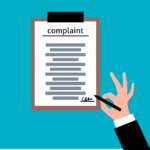It is essential that California employers maintain awareness of and compliance with these additional leave laws — at the federal, state, and local levels. No employer escapes having employees request time off due to worker or family illness. Due to the myriad laws and complexity of employer obligations under the laws on paid sick leave in California, ongoing consultation with an experienced California wage and hour law attorney is an employer’s best course of action.
Federal Laws — Paid and Unpaid Leave in the COVID-19 Era
Employers subject to the Family and Medical Leave Act (FMLA) must provide employees job protection and unpaid leave of up to 12 weeks for specified family and medical reasons. This law also obligates an employer to extend leave to an employee with COVID-19 or with family members affected by it if the existing criteria for leave under the FMLA are met.
Specific to the pandemic, the Families First Coronavirus Response Act (FFCRA) required employers to provide paid sick leave in California and extended family and medical leave from April 1, 2020, through Dec. 31, 2020. An employer is no longer required to provide FFCRA leave but may voluntarily do so. An employer that chooses to provide FFCRA leave is eligible for FFCRA tax credits through Sept. 30, 2021.
California Leave Laws before and during the Pandemic
State sick leave laws in place before the pandemic include the California Family Rights Act (CFRA) and the California Healthy Workplace Healthy Family Act (HWHFA), which cover unpaid and paid leave requirements.
The CFRA generally mirrors the federal FMLA with some exceptions. The CFRA requires an employer with California employees to offer job protection and a total of 12 weeks of unpaid leave during a 12-month period for qualifying employee or family member medical reasons.
California’s paid sick leave law is the California Healthy Workplace Healthy Family Act. Among other HWHFA requirements, employers must provide for the accrual of one hour for every 30 hours worked by an employee and must allow the use of at least 24 hours or provide a lump sum of 24 hours of paid sick leave at the beginning of a 12-month period.
As a result of the emergence of COVID-19, the State of California passed various supplemental leave laws, including the California Supplemental Sick Leave in September 2020. In March 2021, the 2021 COVID-19 Supplemental Paid Sick Leave was enacted, both extending leave through September 30, 2021, and making other changes to the existing law. An employer’s requirement to provide 2021 sick leave is retroactive to January 1, 2021. Like the federal FFCRA, the state supplemental sick leave laws require employers to provide leave for obtaining the COVID-19 vaccine.
Sick Leave Available in California Municipalities
In addition to leave law obligations at the federal and state levels, California employers also need to adhere to obligations imposed by city and county governments, many of which have enacted their own COVID-19 paid sick leave requirements. A California wage and hour attorney who works with employers across the state will best be able to counsel an employer regarding the specific local laws impacting their business.
Similar to federal and state law, a number of local California jurisdictions have amended their own sick leave laws to address the current pandemic. Below is a summary of laws from some of the state’s metropolitan areas.
Los Angeles enacted a Supplemental Sick Leave to address COVID-19 specifically, but it only applies to employers with at least 500 employees in the city or 2,000 employees across the country. Additionally, employees must have worked for the employer at least 60 days before eligible for this leave.
Under the San Francisco Paid Sick Leave Ordinance (PSLO), employers must offer paid sick leave to all employees who perform work in San Francisco regardless of part-time or temporary status. Further, in March 2020, the city’s Office of Labor Standards Enforcement promulgated a rule that, during the health emergency, employers could not require documentation for use of that sick leave.
The City of San Diego Earned Sick Leave and Minimum Wage Ordinance requires employers to provide paid earned sick leave to workers within the city under certain circumstances. A supplemental ordinance was enacted in September 2020 to add that paid sick leave benefits included 80 hours of paid sick leave to any employee who was infected by COVID-19 or who had an infected family member.
In addition to local requirements in the major cities mentioned above, other local governments such as the city and county of Sacramento, Oakland, Long Beach, and San Jose have also established sick leave requirements that may impact an employer’s business, depending on where its employees work.
Ensuring Compliance with Requirements for Paid Sick Leave in California
The COVID-19 pandemic brought change to all aspects of life, including significant effects on the leave laws with which a California employer must comply. An experienced California employer wage and hour attorney can help employers navigate this unusual time. Knowledge and experience are key to complying with both existing and new laws surrounding employee sick leave.
Tracking the shifts in wage and hour laws can be daunting, with federal, state, and local requirements at play. The legal team at the Law Offices of Susan A. Rodriguez, APC has more than 30 years of experience successfully handling California wage and hour matters. For questions about paid leave in California or other wage and hour matters, call us at (323) 272-3954 or complete our online contact form to schedule a consultation.
Posted by Susan A. Rodriguez, Esq.
The information, comments and links posted on this blog do not constitute legal advice, and no attorney-client relationship has been or will be formed by any communication(s) with the blogger. Do not send any confidential or privileged information to the blogger. No information, documents or materials you send to the blog will be considered confidential or privileged by the Law Offices of Susan A. Rodriguez, APC or its lawyers and no information, documents or materials will be returned to you. If you do send any information, documents or materials to the blog, you give permission for the blogger to include them on or in the blog.For legal advice, contact an attorney at Law Offices of Susan A. Rodriguez, APC or an attorney actively practicing in your jurisdiction.





